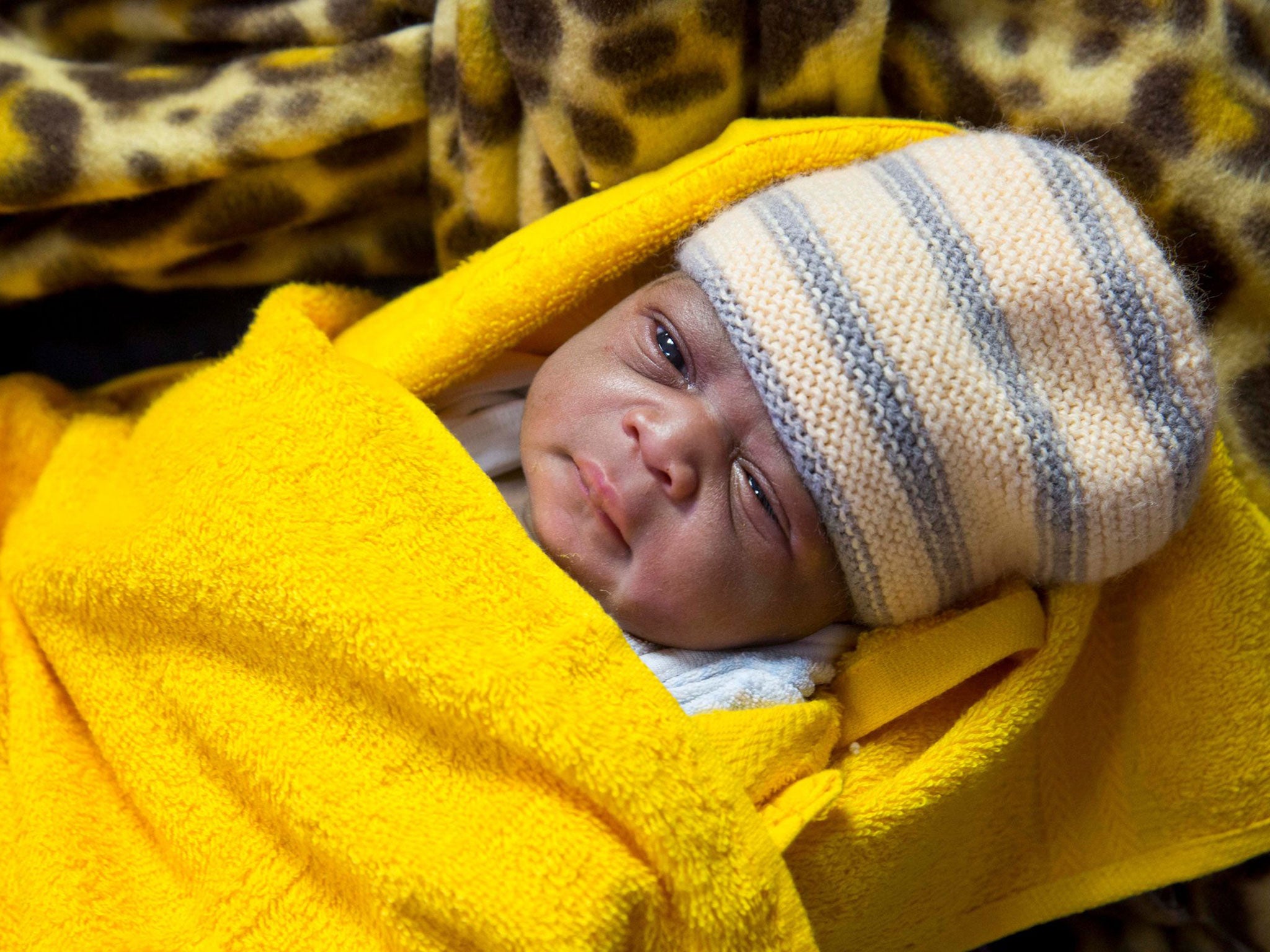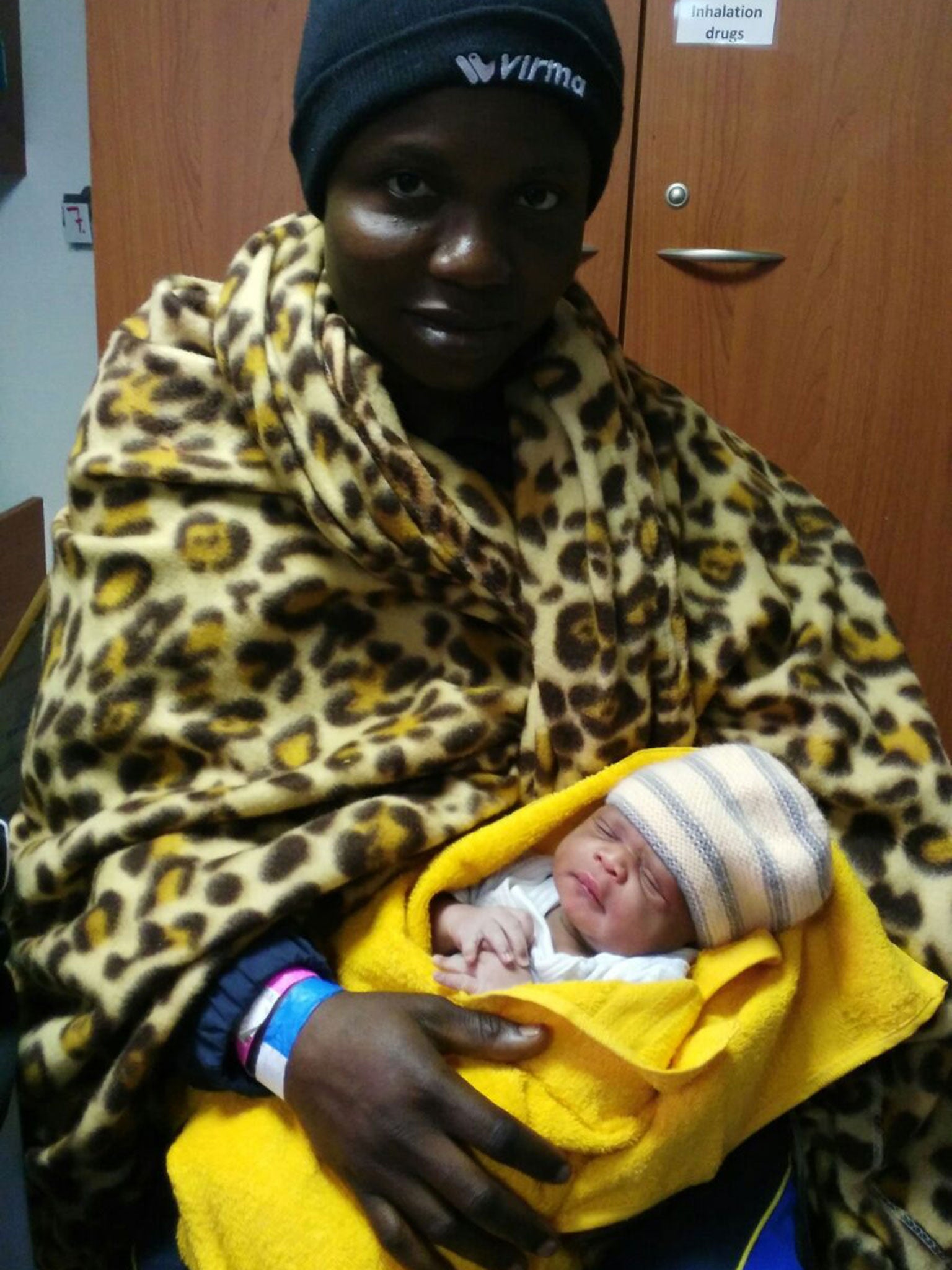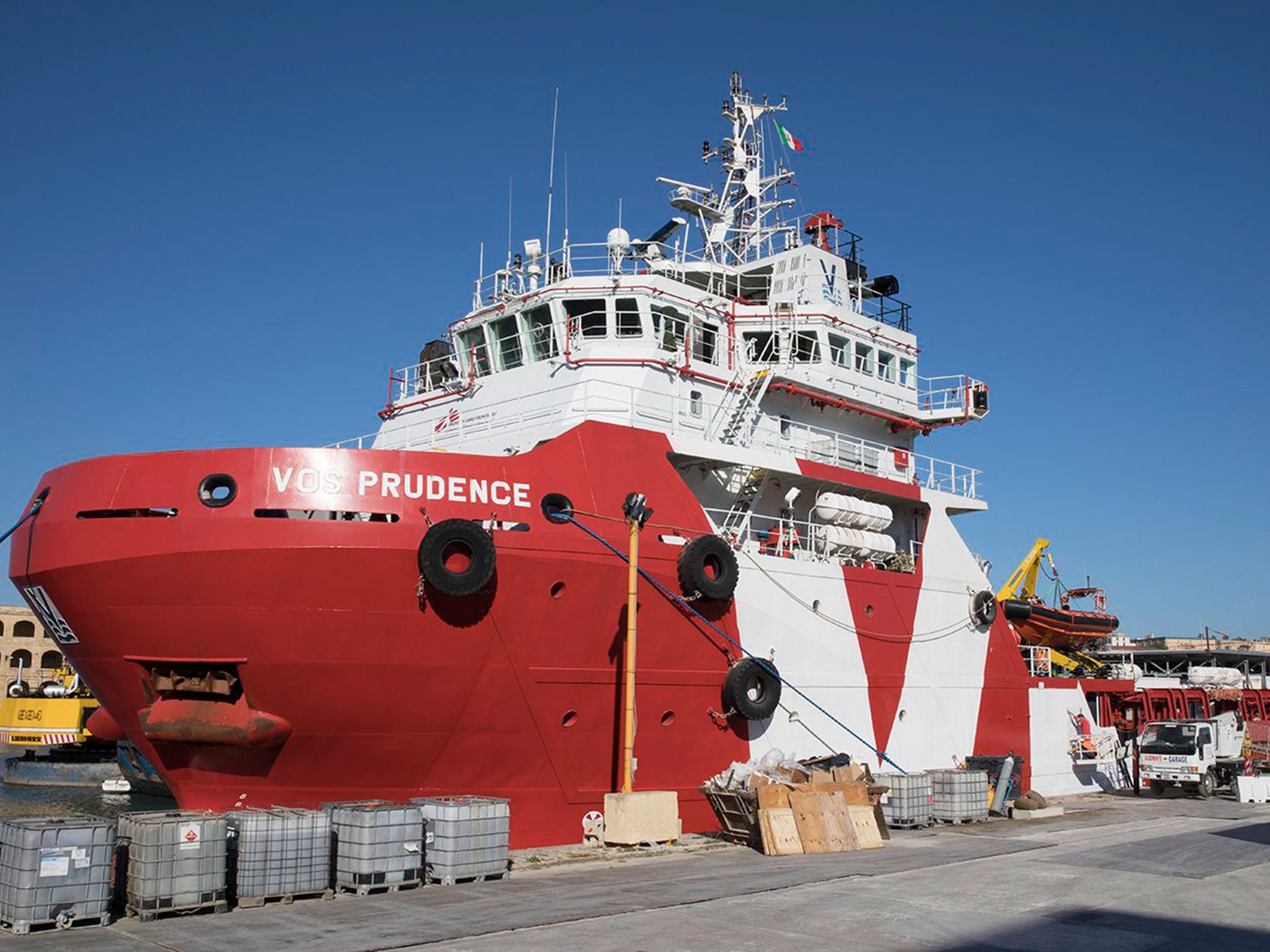Woman gives birth to baby girl on refugee rescue boat as charities brace for spring surge
Baby Mercy among 3,000 people rescued over weekend amid warnings for record year

Your support helps us to tell the story
From reproductive rights to climate change to Big Tech, The Independent is on the ground when the story is developing. Whether it's investigating the financials of Elon Musk's pro-Trump PAC or producing our latest documentary, 'The A Word', which shines a light on the American women fighting for reproductive rights, we know how important it is to parse out the facts from the messaging.
At such a critical moment in US history, we need reporters on the ground. Your donation allows us to keep sending journalists to speak to both sides of the story.
The Independent is trusted by Americans across the entire political spectrum. And unlike many other quality news outlets, we choose not to lock Americans out of our reporting and analysis with paywalls. We believe quality journalism should be available to everyone, paid for by those who can afford it.
Your support makes all the difference.A baby has been born on a ship rescuing refugees in the Mediterranean Sea as charities brace to save thousands of migrants launched by smugglers from Libya with the start of spring.
The infant’s mother was in labour for eight hours on the Aquarius before she was born at a healthy 8oz and taken to hospital after docking in Sicily.
The little girl, described as “perfect” by ecstatic SOS Mediterranee and Médecins Sans Frontières (MSF) crew members, was named Mercy.
“It wasn't an easy birth,” said midwife Elizabeth Ramlow, following the surprise delivery on Tuesday morning.
“I don't know how her mother was able step on that raft in Libya...she must have felt she had no choice.”
Mercy was one of 947 men, women and children to be taken to safety after a hectic weekend that saw more than 3,000 people rescued on one day between Libya and Italy.

Aid agencies fear the mass launches seen on Sunday are a sign of things to come as seas calm with the arrival of spring.
Conor Kenny, an MSF doctor on the Aquarius, said rescuers feared the quality of unseaworthy dinghies used by Libyan smugglers were deteriorating, placing those crammed on board in even greater danger.
He told The Independent the ship would head back to the rescue zone as soon as possible, having received reports of at least 40 people killed when a boat capsized over the weekend.
“The figures have gone up since January and I see no reason why they shouldn’t continue to rise,” Dr Kenny added.
“Within the medical clinic the patients have been victims of torture or sexual violence while in Libya – in detention, by their employers or police or armed gangs as well.”
Dr Kenny said refugees rescued over the weekend were suffering from hypothermia, dehydration and chemical burns from leaked fuel, as well as fractures and sprains sustained in beatings in Libya.
“You simply don’t know what you’ll find with each boat,” he added, saying approaching rescuers routinely check for refugees suffocated at the bottom of boats.
“It’s a fine line between life and death in the Mediterranean.
“Weeks ago we came across boat at 2am with people suffering from hypothermia. Had they been found a few hours later, at least eight of them would have died.”
Almost 20,000 migrants have arrived by sea in Italy so far this year, with a record of 587 dying in the attempt, according to figures compiled by the UN Refugee Agency (UNHCR).
The Central Mediterranean –now the deadliest crossing in the world – has become the main sea route to Europe following moves to prevent crossings over the Aegean Sea with the EU-Turkey deal.
MSF is deploying a second vessel to the search and rescue zone lying to the north of Libya’s volatile coast, with the ship expected to start operations on Wednesday morning.
The Prudence will be able to transport 600 people with emergency capacity for another 400, as well as 13 MSF staff members manning an emergency department, clinic, pharmacy and morgue.
Save the Children is also launching a rescue boat in April, while numerous smaller charities from across Europe are working alongside naval forces and cargo ships enlisted for missions by the coordination centre in Rome.
Stephane Jaquemet, the UNHCR’s regional representative for southern Europe, said unpredictable weather conditions can see several days without any arrivals followed by the launch of hundreds of boats.

“What is certain is that there has been an increase for the first three months of this year,” he told The Independent, saying more people have already arrived than were seen by the end of March last year.
“We are not talking about 2015 scenario like we had from Turkey to Greece, but we may have an increase in numbers, probably to a maximum of 250,000.”
The arrivals are putting huge pressure on the Italian government, which is already housing around 176,000 migrants in reception facilities, while thousands more remain trapped in Greece, Serbia and across Europe.
Rising arrivals have alarmed EU leaders, sparking attempts to stem the flow by increasing cooperation with authorities in Libya, where 90 per cent of boats crossing the Central Mediterranean are launched.
But the country’s fragile Government of National Accord is failing to regain territory controlled by warring factions including a powerful general backed by Russia, while armed gangs and smugglers have capitalised on widespread lawlessness to detain, extort, enslave and eventually export migrants for profit.
Interior ministers from Libya, Tunisia, Italy, Germany, Malta and other nations affected by the refugee crisis released a declaration to tackle the root causes of migration and combat smuggling on Monday.
Delegates agreed to work with Libya to better patrol its coasts, with the coastguard already undergoing training from Britain and other EU nations despite allegations of officials murdering and torturing refugees.
Marco Minniti, the Italian interior minister, said the plans would help “govern illegal migration”, adding that the first 90 sailors were finishing up their seaboard training and Italy expected to deliver 10 patrol ships within months.
The plans have raised alarm among human rights groups amid continued allegations of widespread abuses in Libya including rape, torture, kidnapping, forced labour and arbitrary detention in squalid camps.
Dr Kenny said one of the refugees rescued on Saturday had been on a boat caught and forced back to Libya by the coastguard two weeks ago, and was detained and beaten before managing to depart for a second time on Saturday.
“What these guys undergo when they are detained is brutal,” he added. “That is really concerning.”
Mr Jaquemet said that current proposals would see new camps complying with international humanitarian standards erected in Libya, but such a benchmark could take a long time to realise.
“People who move to Libya with the hope of going to Europe are just a small proportion of the migrants trapped there,” he added.
“There are a number of vital issues that need to be addressed regarding Libya.”
The EU’s migration official has warned member states against failing to host refugees and help alleviate the pressure on countries like Greece and Italy as the summer season looms.
“It is important for governments to understand that they should be part of it,” Dimitris Avramopoulos told a news conference in Warsaw on Tuesday.
“If some of them do not comply ... the Commission has the power, the tools to convince these countries.”
Fewer than 14,500 asylum seekers have been relocated from Greece and Italy under a two-year plan that was supposed to resettle 160,000 people elsewhere by September.
The vast majority of migrants arriving in Italy are from sub-Saharan African nations including Guinea, Nigeria and Gambia, and Bangladesh, while those reaching Greece are mostly Syrians, Iraqis and Afghans.
Join our commenting forum
Join thought-provoking conversations, follow other Independent readers and see their replies
0Comments